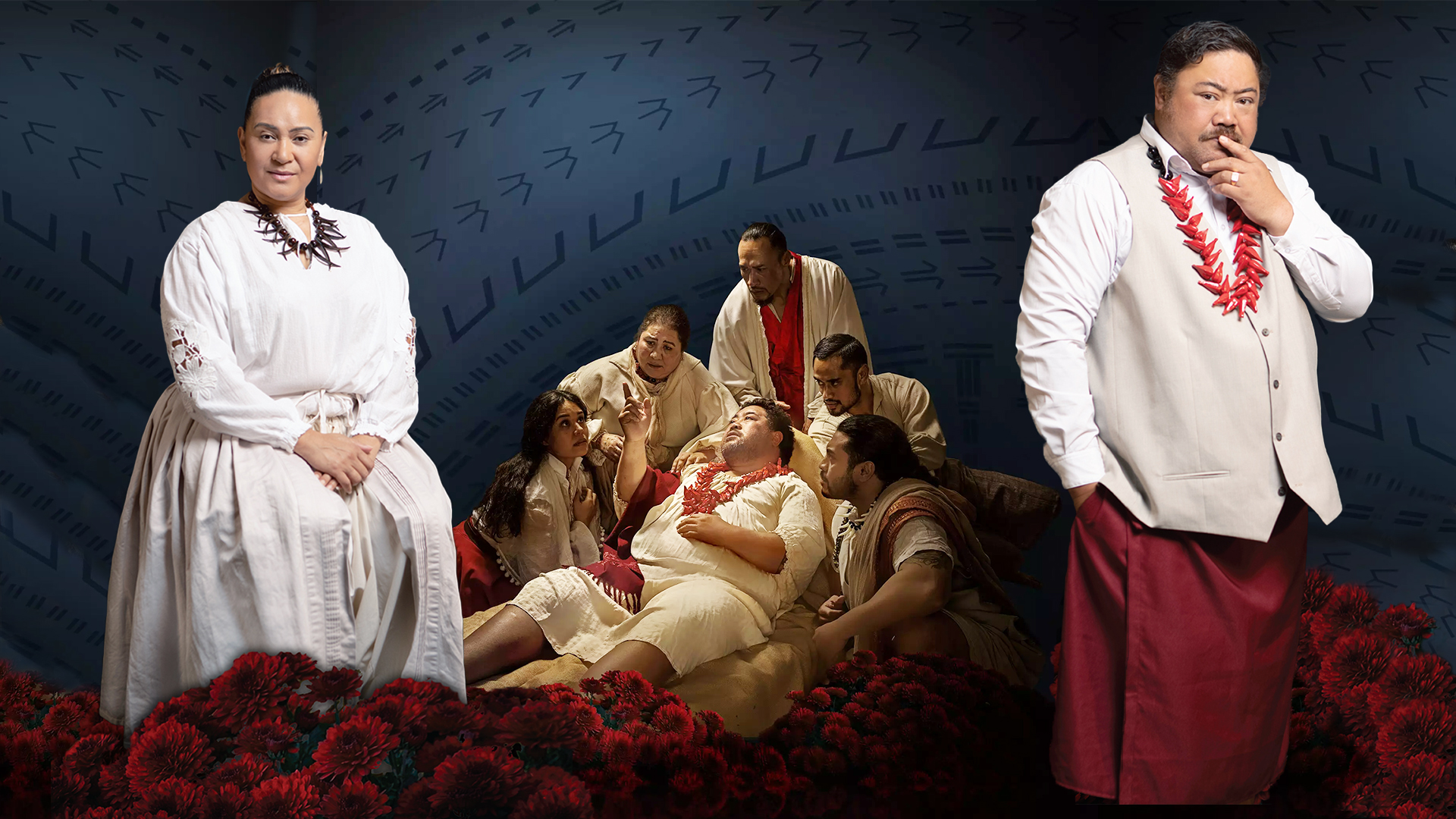“There was a longing in me to make something with the essence or something with the framework of fa’asamoa in it because, I believe it is very unique.”
When I sat down to have a chat with playwright Natano Keni regarding his latest play “O le pepelo, le gaoi ma le pala’ai”, I had a lot of questions myself.
I wondered if his name was from the Bible, derived from the prophet Nathan (Natano) who became God’s messenger to King David in the old testament.
“I assume it is”, he laughs.
It can be argued however that his work does convey a “prophet-like” sense. Somewhat like a messenger who is sent to figure out the occurrences of things throughout life.
Or put simply, a man who loves to question things.
“I started from a question”, Natano says.
“What if when Samoan people migrated to New Zealand for whatever it was, I always question why did they leave home? Why are we here now?”
It was that curiosity that pushed him to write “O le pepelo, le gaoi ma le pala’ai/The Liar the thief and the coward”.A combination of his search for answers and his undying love for fa’asamoa or the Samoan way of life.
“I am Samoan, and I guess that’s something I have always had, which is a love for fa’asamoa.
“There was a longing in me to make something with the essence or something with the framework of fa’asamoa in it because I believe it is very unique.”
When writing the play, Natano wanted to emphasise the importance of fa’asamoa right through to the small detail.
This included the use of the Samoan language in the dialogue and script.
“It was really important you know, but also being in the clarity of mind that the fa’asamoa itself is in many different areas,” he says.
Someone who has benefited from the inclusion of the Samoan language in the play is cast member and actor Villa Junior Lemanu.
Vila plays the role of Tama’i toeaina, who depicts the role of the taule’alea or untitled men in the setting of a Samoan village council.
Like Natano, Villa is also a New Zealand-born Samoan who has found his involvement in the play as a way to reconnect with his Samoan roots.
“I talk to my parents now and they’re realising that I am using more and more Samoan words,” Villa says.
“So like, even my Mum said something really nice and she was like, “oh yeah, yeah, magaia lou leo (your pronunciation is improving).
“I’ve been really having fun working alongside other actors and even hearing their characters develop as the process continues has been fun and exciting for people to make these discoveries”.
Also finding their sense of belonging with their Samoan culture is actor Semu Filipo who plays the character Pili Tauileva.
“There’s a deeper investment of myself as an actor in regards to Pilis journey. More his psyche and how he is in certain scenarios in the play and where he is”, Semu says.
A father and devoted family man, Semu has also used the play as a way of helping his children understand the Samoan culture.
“For me it’s about my integrity to faasamoa which then has an effect on my kids. They see and ask questions, and they ask questions a lot. Like why do we do this? We don’t even know that uncle, but we’re still giving?
“Because it’s the connection to the name and it’s the relationship to aiga.”
A connection that, for Natano Keni, he hopes to have with the audience.
“I hope that people will be able to look through these different roles and see the perspective of these people are linked back to the faa samoa and not saying who’s right or wrong.
“I want them to look through each of these lenses of the characters, whether it’s a character who’s moved to New Zealand, or someone that’s gone to the US, but also the people staying in Samoa, it’s looking through the lens as well and going, hey look, this is what it is!”
The play is currently on show at the ASB Waterfront Theatre, and will run right through until March 23.













